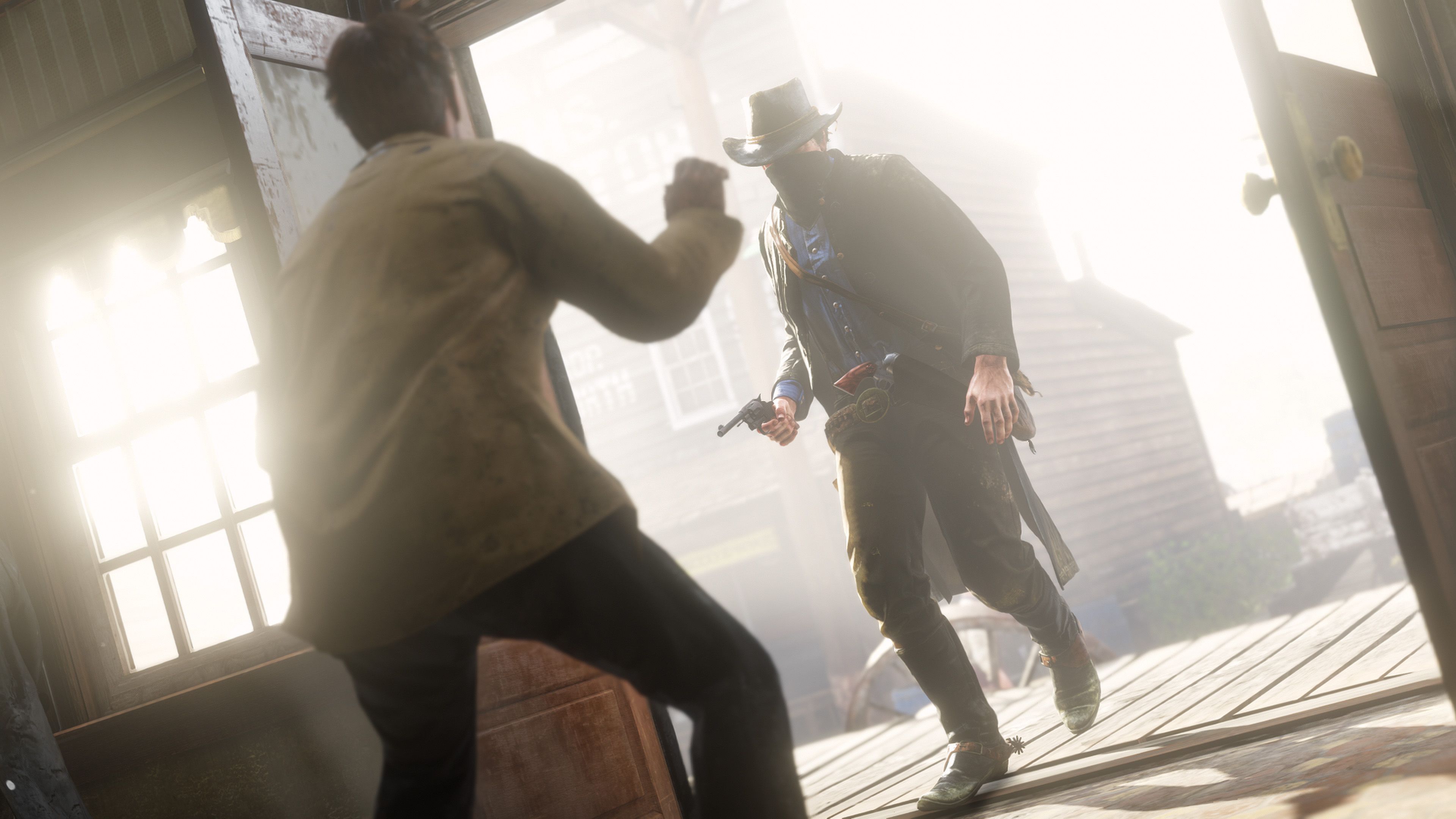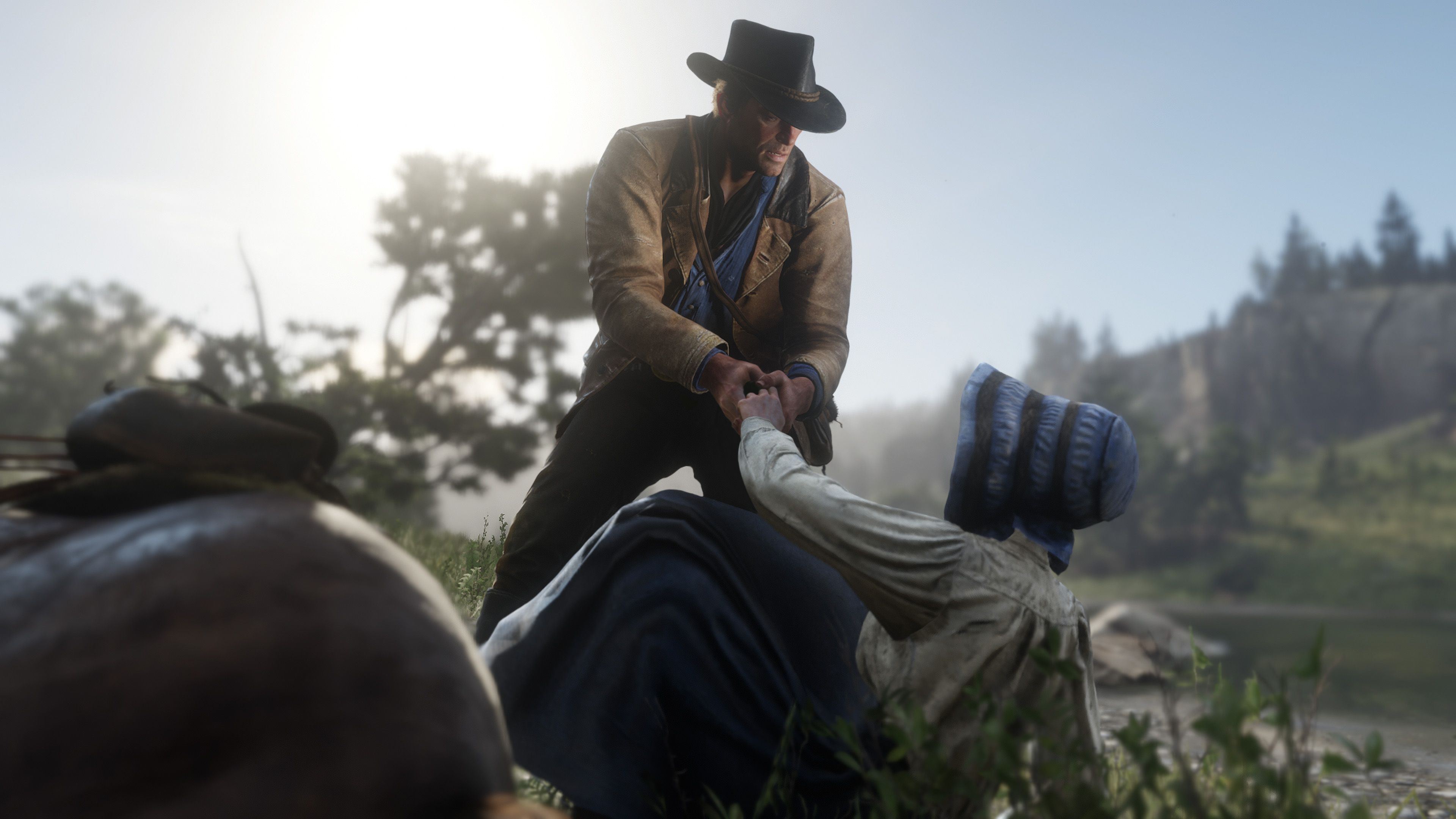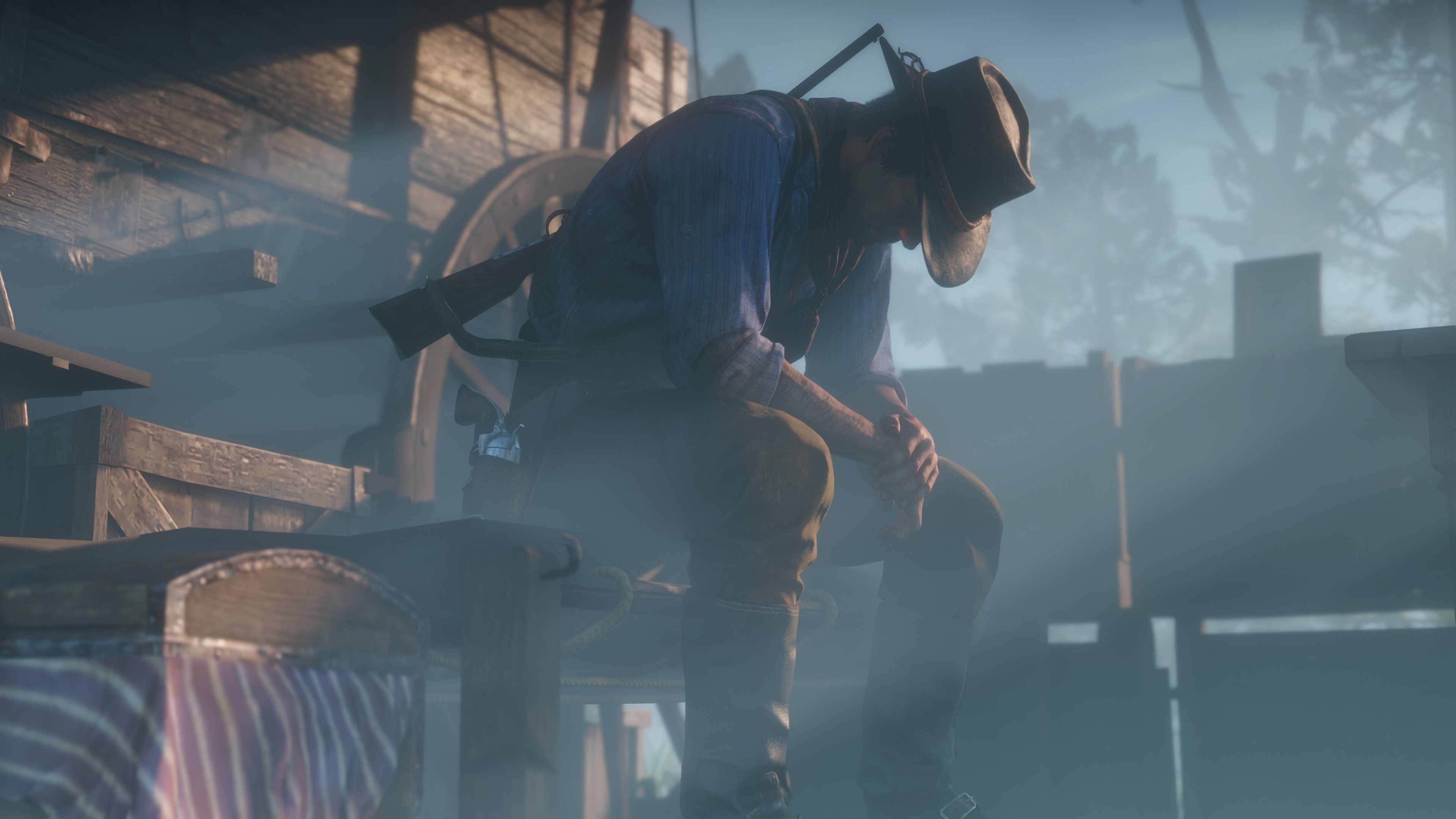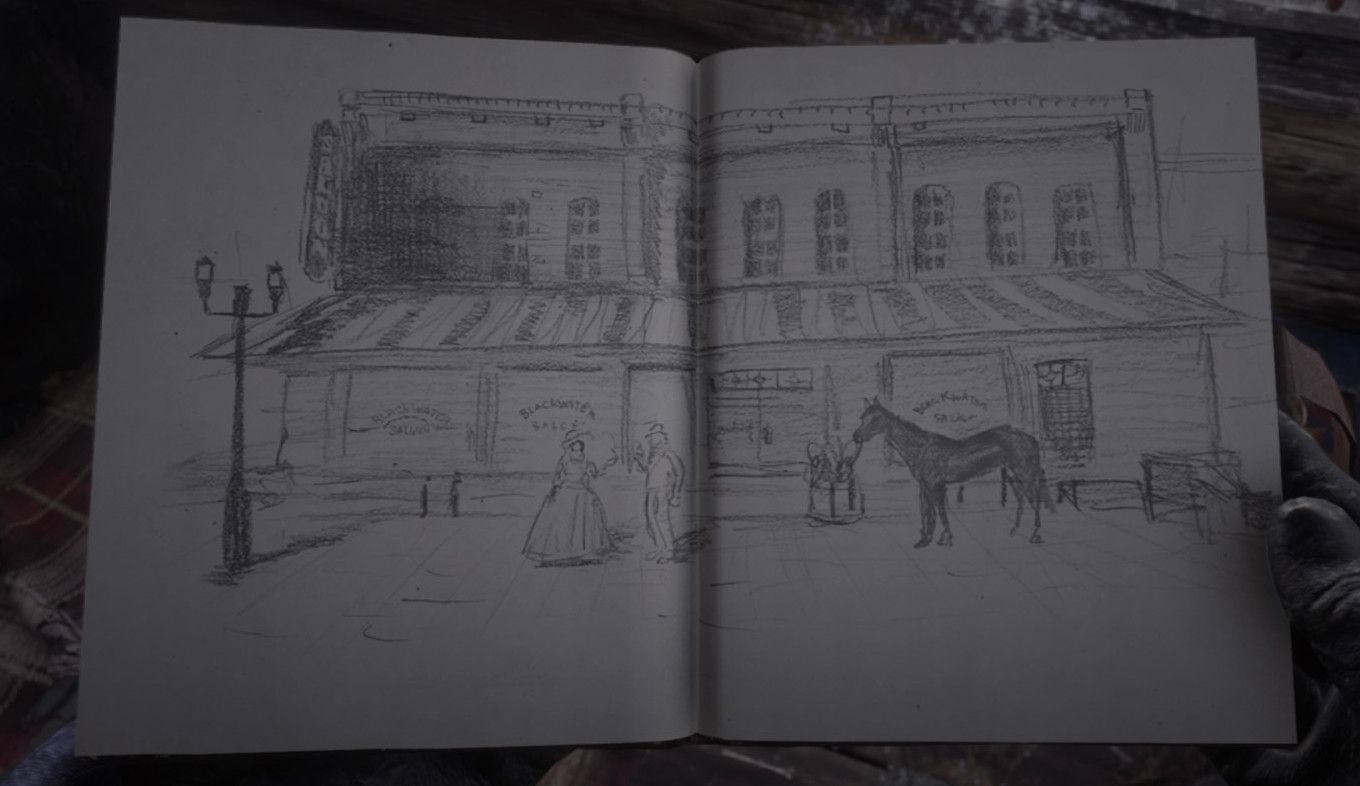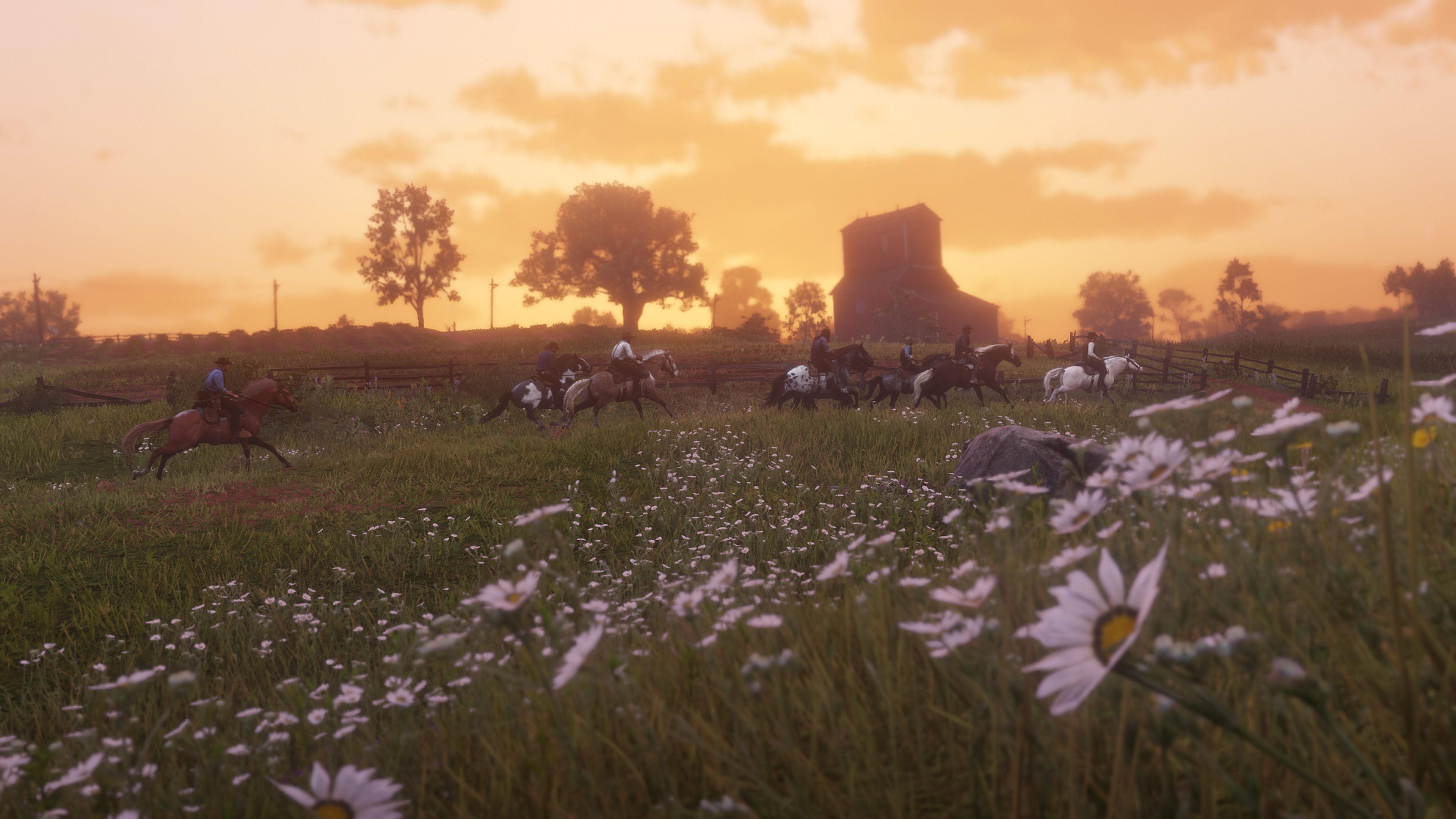[Editor’s Note: This editorial will dive into some story spoilers for Red Dead Redemption 2, so we would suggest coming back to this piece after you have completed the game’s main story and epilogue.]
Throughout Red Dead Redemption 2, protagonist Arthur Morgan will occasionally voice his displeasure at all the death and destruction that surrounds him and the gang he runs with. As with all good video game protagonists though, missions continue to have you murder hundreds of others and the optional ability to engage in therapy sessions with other women at the gang's camp. In these conversations Arthur can admit that he feels bad for all the killing he is doing and doesn't know why he is doing it; that he sometimes feels as if he is not in control of his actions.
This meta-acknowledgement that Arthur is, after all, just a video game character for the player to control is also a signal that Arthur desires a different life. In his journal, Arthur writes about the conflict of good and evil within him, and envies how easy it seems to be for others, like Charles, to be good. However, the Arthur who exists in those small conversations and in the journal is a separate entity from the one in the game that you control. That Arthur won't help strangers without the promise of payment. Main missions continually task you with destroying others for your own potential benefit. Arthur will sometimes offer limp verbal disagreement to the actions and decisions of the gang, but it is not until late in Chapter 5 that he actually begins to actively pursue altruism: helping others simply for the sake of it.
In the open world of Red Dead Redemption 2, you are given the ability to choose an honorable path or dishonorable one: essentially you can try to be good or bad. Choosing to be honorable means saving women from kidnappings, helping the law bring in bounties, saving civilians from other gangs, and helping strangers in danger who appear along the roadside. Being dishonorable means killing the law and helping criminals, killing strangers, stealing from civilians, and mostly killing in general.
This option, in and of itself, goes against the narrative of Red Dead Redemption 2, which focuses on Arthur's search for altruism, that he is trying to be a good person. This dissonance is not felt significantly until the very end, where Arthur has decided to follow an altruistic road, but when in the open world the player can still choose to kill and steal from civilians, contradicting the character's arc.
[pullquote]"In the open world you are free to do most anything, whether it be help others or kill them."[/pullquote]
One of the most affecting examples of this for my playthrough in Red Dead Redemption 2 was when I came across a house after finishing a race with a stranger. I went into the house curious if there was anything inside, such as the seemingly endless amount of cigarette cards. Inside, there was a father and son having a tense confrontation over the father's wasteful habits that caused his wife to leave them. While leaving, the boy discovered my hiding place and ran to his room. The father pulled out a gun, so I naturally killed him and proceeded to loot the location as muscle memory kicked in for every other location in the game.
When I entered the kid's room though, I found him crying underneath his bed. When I went to take the cigarette cards, he began pleading with me to leave them as they were all that he had left from his mother. I, as Arthur, killed him in cold blood, thinking it was mercy to spare him a life with a mother gone and a father dead. While I was greatly affected by this, Arthur was unmoved, never uttering a word during the event and never writing about it afterwards. Rockstar saw fit to create unique dialogue for that situation, but not to create a response in Arthur to it. This may just be oversight, but it presented the character as unmoved by the killing he does, despite what he may say to Tilly or Mary-Beth at camp, and what he may write in his journal afterward.
[pullquote]"The trend of characters who kill or have killed only have to take a moment to acknowledge that what they did was bad and not actively work towards helping others to be considered okay is so tired."[/pullquote]
The greatest violation comes when you meet Rain Falls, a Native American chief, in Saint Denis. Having briefly encountered him during a party at the mayor's house, he now seeks your aid to help obtain documents that report an oil reservoir underneath the reservation land. Arthur is, as usual, unwilling to help out until one of them offers payment in return. However it isn't until he begins to compare the persecution his gang faces to the persecution the Native Americans face as somehow equal that he really begins to show his true character.
Thankfully, he eventually learns later on when Red Dead Redemption 2 shows nothing but disdain for the way the United States government and military have treated the Native Peoples that his prior statement was not true at all. However, it does show that Arthur was uninterested in helping other people unless it meant he got paid, even when it was a people group as badly treated as the Natives.
Arthur eventually learns what it means to be a good person, to help other people without selfish intent, but it comes too late. The catalyst for his realization of purpose comes alongside the realization that he is going to die due to tuberculosis. His cough, which appears incessantly in cutscenes but rarely anywhere else, telegraphs his doom very early on. By this point I was finished with the game's narrative, as both myself and the game knew where this was going. It had nothing more to show me or lead into, and yet it continued to fill time until the finale. In case you weren't quite clear on what theme Red Dead Redemption 2 was trying to hammer (clumsily as it is) with Arthur Morgan, it has Arthur's ex-fiance send him a letter that plainly lays it out with the line, "There is a good man within you, but he is wrestling with a giant, and the giant wins again and again."
[pullquote]"Where does this Arthur exist?"[/pullquote]
By the time I reached Arthur's final decision, one in which you can once again engage in a contradiction by attempting to steal the gang's stash instead of aiding John Marston in his escape, I was already finished. Arthur's death was just another bump in the road in discovering what exactly the epilogue held, as the mystery over who you would play as was much greater than seeing the closing scenes of a character I was done with many hours before.
I like Arthur Morgan, but I like the version of him that exists in the journal more than the one who exists on-screen. The Arthur Morgan of the journal is one who finds beauty in the landscape, in the people, and in the tragedies of the West. The Arthur Morgan on-screen is a character trope I'm so tired of seeing: the man who kills, but is tired of the killing.
[pullquote]"The Arthur Morgan of the journal is one who finds beauty in the landscape, in the people, and in the tragedies of the West."[/pullquote]
Red Dead Redemption was the tale of John Marston being forced back into the life of an outlaw due to his family being held hostage by the government. Marston was a man who was tired of killing, but would do it anyway because he wanted his family back and to return to a life of peace. This is curiously repeated in the epilogue of Red Dead Redemption 2, as you once again take control of Marston as he seeks a peaceful life on the ranch of another only to be forced back into killing.
Throughout the opening third of Red Dead Redemption, Marston will attempt to call out the immoral actions of his companions, only for them to turn around and point out how Marston comes from a life of immorality. At one point he attempts to defend his prior life as one with a code, to which Bonnie MacFarlane mockingly replies, "The outlaw with a code? How wonderfully romantic! The reluctant murderer, the noble criminal. There's nothing more depressing than a man who's found a way to think the bad into good."
In Red Dead Redemption 2 Rockstar attempted to take that statement and remove the mocking tone, presenting the fall of Dutch Van der Linde and the dissolution of his gang as a great tragedy, much like the death of the Old West. They found a way to turn the bad into good, and even then not so convincingly.

